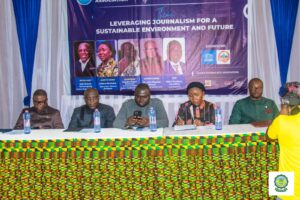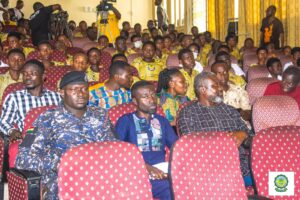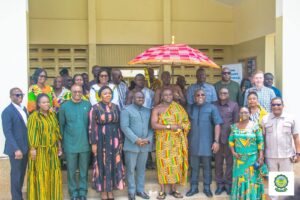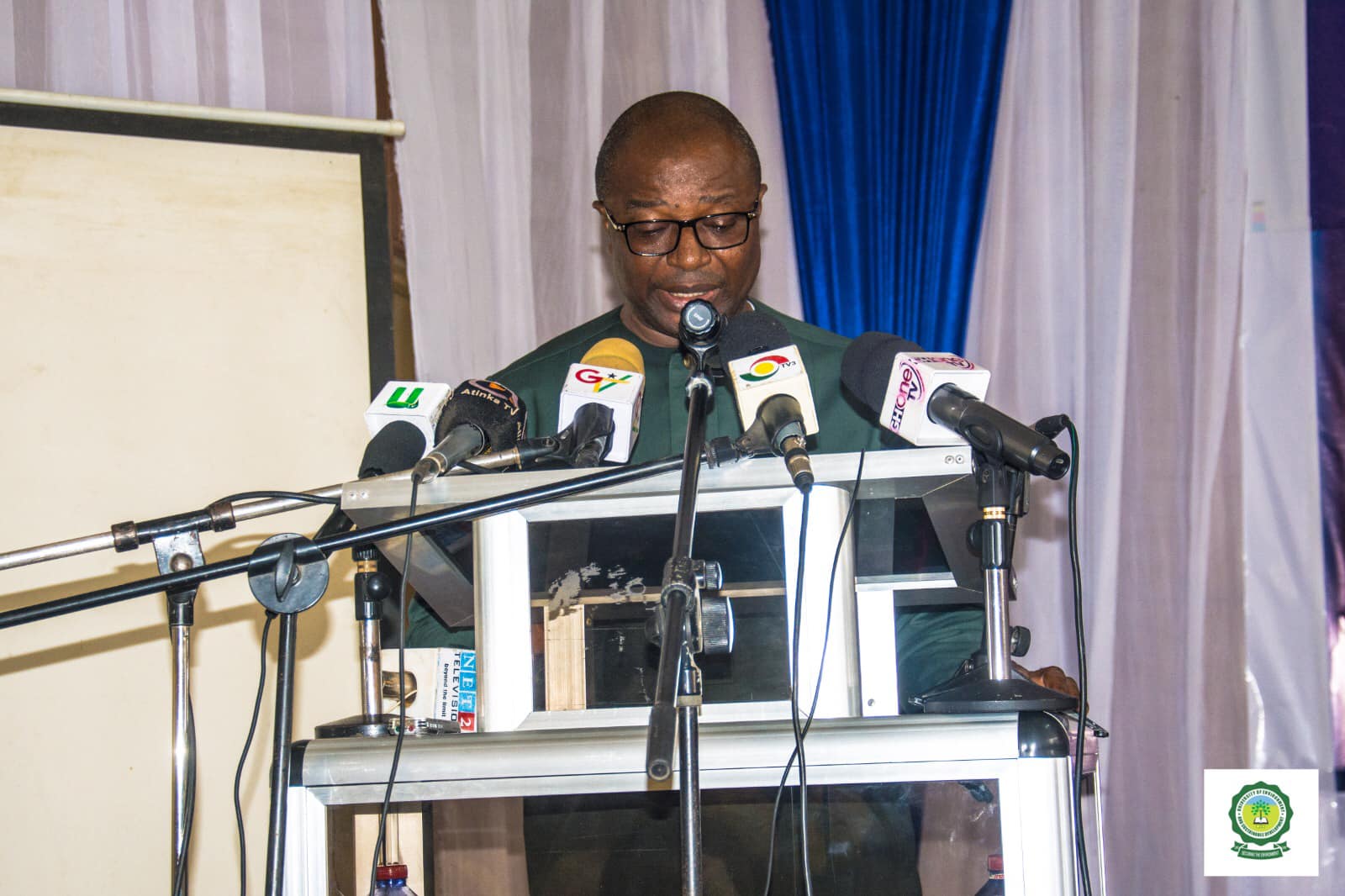The Vice-Chancellor of the University of Environment and Sustainable Development (UESD), Prof. Eric Nyarko-Sampson, on 3rd May, 2024 joined Journalists across Ghana to mark World Press Freedom Day at the Koforidua Technical University, in the Eastern Region. The national theme was: “Leveraging Journalism for a Sustainable Environment and Future,” while the Global theme was: “A Press for the Planet: Journalism in the Face of the Environmental Crisis”.
It was chaired by the Omanhene of the New Juaben Traditional area, Daasebre Kwaku Boateng III and attended by other dignitaries including the Minister designate for information, the Eastern Regional Minister and Executives of the Ghana Journalists Association.


In a short address, Prof. Nyarko-Sampson, underscored the importance of the media locally and globally. He said, world Press Freedom Day is a day set aside by the United Nations to celebrate the fundamental principles of press freedom, to evaluate freedom around the world, to defend the media from attacks on their independence and pay tribute to journalists who have sadly lost their lives in the exercise of their profession. Journalists need to be protected and not targeted.
The Career Guidance and Counsellor who has a media background traced the growth of the media from the traditional print and electronic media to include today’s “Social Media platforms” creating bloggers who are also working in the media space.

He said, the role of the media does not only focus on national issues but also on education, entertainment, culture and information dissemination. The media have to recognise that they have power to set the tone for development agenda for the nation. Therefore, such discussions can be aimed at educating people on sustainable development concepts that can change the way society is managing its resources for the future.
Prof. Nyarko-Sampson indicated that the media therefore have a lot of areas to cover in their reportage, such as environmental education and awareness creation, where media houses dedicate some days for such education, with the help of experts to promote a sustainable environment with institutions working specifically on environmental issues.
Prof. Nyarko-Sampson indicated that the media’s role in achieving the Sustainable Development Goals cannot be overlooked and called for community empowerment discussions that will foster behavioral change, to find common approaches to addressing negative environmental practices on human existence.


